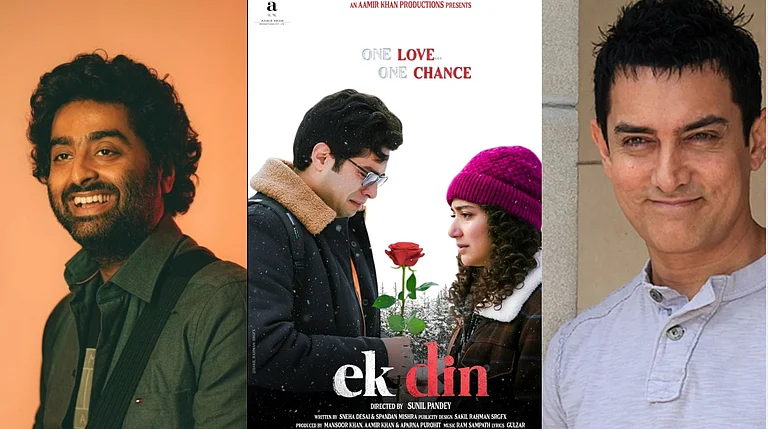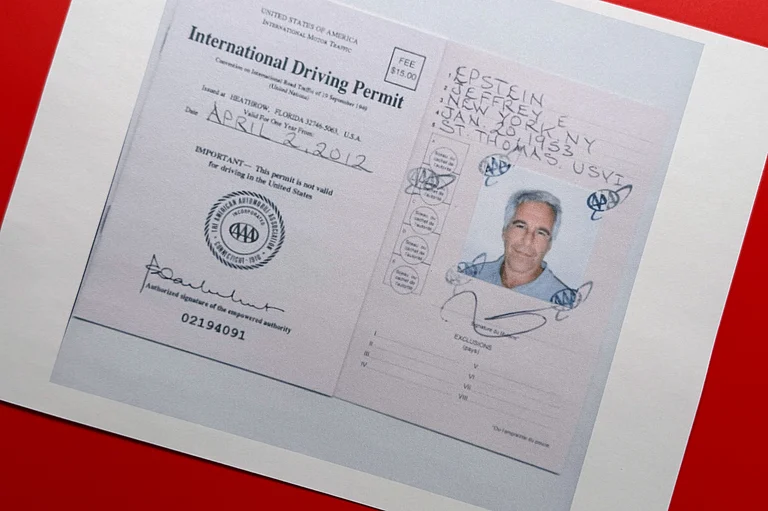THE legendary press baron, Lord Beaverbrook, had instructed his editors to "spread optimism daily". It was their solemn duty, he affirmed. While the Lord's command is a useful guideline for editors, in this country at present it is unimplementable, for the people of India by their baffling verdict have mandated for a period of uncertainty and turbulence. Whichever government comes to power, the seeds of its destruction will be inherent in its creation. And that destruction may be sooner rather than later. The electorate, unfortunately, has not just delivered a hung Parliament but the mother of all hung Parliaments. (A hung Parliament was delivered in 1991 but then the Congress got nearly 240 seats.)
This writer does not wish to add to the near-saturation speculation on which combine will eventually form the government, but you don't have to be Dr Prannoy Roy to 'project' that two of the three contenders will have to join hands in order to reach the 'magic figure' (if journalists watch too much television they begin to write the way anchors speak). Whether they do so internally or externally is besides the point. The fact that the support of regional parties for any one combine will still leave that combine substantially short of a simple majority is now beyond dispute. Thus, if some kind of alliance between two of the three contenders is inevitable, then Indian democracy for the next 12 to 18 months is in for big trouble.
Remember, the BJP and the NF-LF now see themselves as potential rulers in Delhi thanks to the results (the Congress has always believed it is the natural party of government). Having come so close, who can blame them for coveting a full mandate? Therefore, any alliance reached to enable government formation will not only be shortlived, as is the nature of Indian coalitions, it will be even shorter because each of the three contenders will look for the first opportunity to test the people's will again.
Assume that an NF-LF government comes to power with Congress support. And let us assume that the Congress agrees to become part of the government. Nevertheless, one can be sure it will position itself as the 'junior partner' distancing the party from the travails such a combination encounters in governance. Assume further that the senior partner is genuinely sincere in serving out a full term. Well, you can be sure that the junior will immediately sense danger, since success, even partial success, for the senior means next time around he can seek a majority verdict. In such circumstances, the senior partner will be ditched rather quickly. In other words, if there is an NF-LF plus Congress government, the latter will have twin objectives:
An identical situation must prevail if the Congress is the senior partner and the NF-LF occupies a subsidiary position. Similarly, if the BJP and the Congress get together in some formation the scenario sketched above will remain. These days Mr Advani and his office-hungry lieutenants advance the theory that a majority will somehow "emerge" once they are officially invited and begin the process of government formation.
There is even a suggestion that a BJP government with, say, 225 seats could survive since the opposition will be reluctant to pull it down. Of course, such a government could survive, but it would survive on a day-to-day basis with all the attendant hazards of such existence. The wise Vajpayee is reluctant to govern in this manner confessing in private: "Mein kyoon bakra banoo? (why should I become the sacrificial goat?)" There is a respectable body of opinion in this country which holds that India has reached an era of coalition governments, and like it or not we have to make the adjustments necessary to live in such an era. Mr V.P. Singh calls this the "politics of compulsion". We are further told that in Spain and Finland coalitions have worked satisfactorily, so why not in India? I am not au-fait completely with the precise composition of regimes in Spain and Finland, but if you look for a country with a robust and vibrant democracy, chances are you will find the party system flourishing there. Britain, Australia, Sweden come to mind. The world's most powerful and prosperous democracy, the United States, has a presidential arrangement, however even here single parties are supreme.
Democracy, finally, is about choices. The electorate chooses. If it does not approve of one 'set of rogues' the other 'set' is given a chance. In India in this election, voters did not have a 'full' choice. While the majority was determined to throw out the Congress, the nation was not sure who to put in its place. Why? Because the BJP, which should have been the automatic choice, frightens the hell out of a sizable portion of our population, thanks to its lunatic fringe. Maybe we are moving towards a coalition era, but I believe our priority should be to strengthen the party system so that the electorate can be given clear choices.
Finland and Spain notwithstanding, the record of coalition governments in India is dismal. At the Centre there have been four pathetic attempts—the most successful gave us a government for 27 months, while the shortest had a life of five-and-half months. The most recent foray into coalition was between the BJP and the BSP. To an outsider unfamiliar with the way we do political business in the country, this particular sangam would be at once astonishing and bizarre given the sharp antagonisms between the two parties. Yet they managed to wed.
Think back to the faces which were prominent in December 1989 when V.P. Singh took office. These are the same people who are asking the nation for "another chance". Do Messrs Advani, H.K.S. Surjeet, Sharad Yadav, Mulayam Singh, Laloo Prasad and Chandra Shekhar deserve such a chance?
No doubt, it would be unfair to condemn these people in perpetuity. Perhaps they have reformed, perhaps they can work together, perhaps they have seen the writing on the wall. All these things are possible, what some pundits are calling the "new realism". However, even with this ideology, our system is in for a prolonged period of education and experimentation. We have to learn how to make coalitions work. I don't have to remind readers that this process—besides being messy, stormy and possibly violent—could take up to 10 years. What happens in between?
I yield to no one in my admiration for the earthy commonsense of the Indian electorate. And one can understand their anxieties as they voted in this election, but by not giving any party a clear mandate they have taken grave risks which our fragile republic can ill afford. For once, I would be happy to be proved wrong.






















